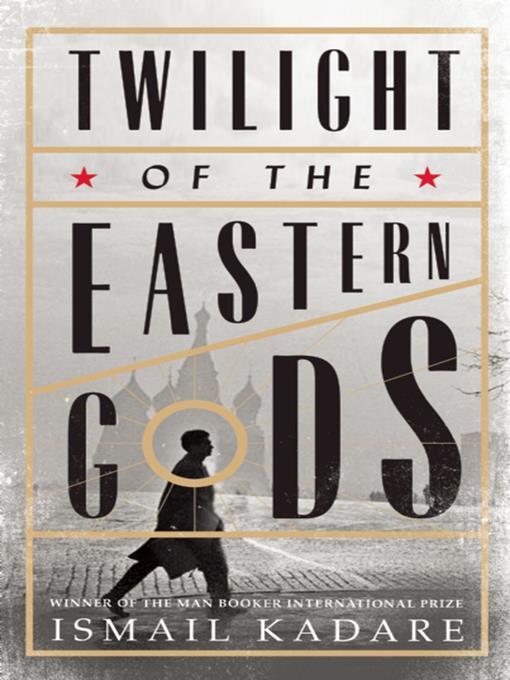
Twilight of the Eastern Gods
کتاب های مرتبط
- اطلاعات
- نقد و بررسی
- دیدگاه کاربران
نقد و بررسی

September 15, 2014
Back in the days of the USSR, the regime maintained a literary institute in Moscow for young writers from the vast region it dominated. On the evidence of Kadare’s (The Fall of the Stone City) early autobiographical novel, the writers, including a very young Ismail Kadare, spent their time drinking, attending stupendously boring lectures, hitting on women, and dealing with their ambivalence. It’s 1958: the big news is the scandal of Boris Pasternak’s Nobel Prize, but below the surface lurks the gradually cooling relations between Albania and the Soviet Union. Kadare, now an elder statesman of Albanian literature, casts a cool eye on his fellow writers, depicting discussions of plots they will never write (about “limping party secretaries who stole piglets from the collective farm,” for instance) and their guilt at renouncing their languages to “take up with that hag of a step mother, Russian,” but he seems no less miserable and conflicted. Translated into English for the first time (with an informative note by the translator about the book’s complicated publishing history), its appearance as Putin’s Russia tries to reclaim former possessions is timely, and the view of a world that seems so tremendously far away has its interest. Unfortunately, however, Kadare’s fidelity to the dull, compromised, and often soddenly drunk lives he and his fellow writers led makes for dull reading. Agent: Andrew Wylie and Jacqueline Ko, Wylie Agency.

September 15, 2014
Kadare's spare novel recalls a world now unfamiliar to many: the Soviet Union during the Krushchev era. The septuagenarian author, winner of the inaugural Man Booker International Prize, was a promising poet in his native Albania as a young man, which won him a prestigious place at the Gorky Institute for World Literature in Moscow. This novel, written mostly during that period, records Kadare's time studying with the stars of Soviet literature. His experience proved to be soul-crushing: not only did political repression take its toll on artistic freedom but Kadare found his status at the school perilously linked to Albania's political relations with the USSR. Kadare was in Moscow when Boris Pasternak was awarded the Nobel Prize, to which the Soviet media responded with a frenzy of denouncements disturbingly like what we now hear on our own strident news channels. VERDICT This witty autobiographical novel, a precursor to work by the current generation of authors writing about modern Russia, such as Gary Shteyngart, offers perspective on our current political atmosphere in prose that's crisp and at times laugh-out-loud funny (describing a student outing, he remarks, "they said 'ski' but they heard 'vodka' ").--Reba Leiding, emeritus, James Madison Univ. Lib., Harrisonburg, VA
Copyright 2014 Library Journal, LLC Used with permission.

























دیدگاه کاربران